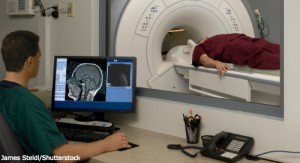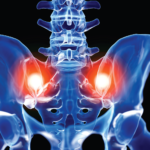 Rheumatologists have three important treatment goals for patients with rheumatoid arthritis (RA): eliminate signs and symptoms, prevent joint damage or its progression, and maximize physical function and quality of life. These goals drive the practice guidelines that emphasize treating RA patients using the treat-to-target algorithm. Moreover, patients who achieve these therapeutic goals are considered by most rheumatologists to be in remission.
Rheumatologists have three important treatment goals for patients with rheumatoid arthritis (RA): eliminate signs and symptoms, prevent joint damage or its progression, and maximize physical function and quality of life. These goals drive the practice guidelines that emphasize treating RA patients using the treat-to-target algorithm. Moreover, patients who achieve these therapeutic goals are considered by most rheumatologists to be in remission.
Unfortunately, although a shared recognition of the importance of remission exists, RA disease biologic pathways and activity assessment instruments do not support this shared definition of remission. Thus, rheumatologists still seek ways to objectively measure remission. Some rheumatologists have proposed the use of sonography or magnetic resonance imaging (MRI) to quantify subclinical synovitis. Although these appear to be logical tools for measuring remission, it is unclear that treating to target based on imaged subclinical inflammation yields different outcomes than treating to target based on clinical symptoms.
A new study has addressed this question and found no difference in disease activity remission rates or radiographic progression between RA patients who are treated with an MRI-guided treat-to-target strategy and those treated with a conventional treat-to-target strategy. The results of the IMAGINE-RA clinical trial by Signe Moller-Bisgaard, MD, PhD, rheumatology resident at the Rigshospitalet, Denmark, and colleagues were published in the February issue of JAMA.1 The study included 171 patients and evaluated the treatment response of RA patients who were in clinical remission at baseline. Unfortunately, despite the study’s intention, investigators discovered that only 86% of the enrolled patients randomized into the MRI-guided treat-to-target group were in remission at baseline compared with 96% of patients in the conventional treat-to-target group.
The trial’s primary outcomes were disease activity remission by disease activity score in 28 joints C-reactive protein (DAS28-CRP) of less than 2.6 and the elimination of radiographic progression at the 24-month follow-up appointment. The researchers found no significant difference in the proportion of patients in the conventional group vs. the MRI-guided group who reached either of the two primary end points.
During the study, approximately one-third of patients experienced radiographic progression of RA as determined by total van der Heijde-modified Sharp Score (vdHSS) progression, while 17% progressed above the measurement error of smallest detectable change. However, more patients in the MRI-guided treat-to-target group experienced treatment escalations (73% vs. 17%), received biologic treatment (46% vs. 2%) and experienced serious adverse events (19% vs. 7%) than patients in the conventional treat-to-target group.
Previous studies have addressed the role of imaging in treating to target, but have evaluated ultrasonography not MRI. The Aiming for Remission in Rheumatoid Arthritis: A Randomised Trial Examining the Benefit of Ultrasound in a Clinical Tight Control Regimen (ARCTIC) and Targeting Synovitis in Early Rheumatic Arthritis (TaSER) also differed from the current trial, focusing on patients with early RA who had a much higher disease activity at baseline.2,3 The results from all three studies support the understanding that subclinical inflammation does not signify progression of joint damage during sustained clinical remission.
Lara C. Pullen, PhD, is a medical writer based in the Chicago area.
References
- Møller-Bisgaard S, Hørslev-Petersen K, Ejbjerg B, et al. Effect of magnetic resonance imaging vs. conventional treat-to-target strategies on disease activity remission and radiographic progression in rheumatoid arthritis: The IMAGINE-RA randomized clinical trial. JAMA. 2019 Feb 5;321(5):461–472.
- Haavardsholm EA, Aga AB, Olsen IC, et al. Ultrasound in management of rheumatoid arthritis: ARCTIC randomised controlled strategy trial. BMJ. 2016 Aug 16;354:i4205.
- Dale J, Stirling A, Zhang R, et al. Targeting ultrasound remission in early rheumatoid arthritis: the results of the TaSER study, a randomized clinical trial. Ann Rheum Dis. 2016 Jun;75(6):1043–1050.
